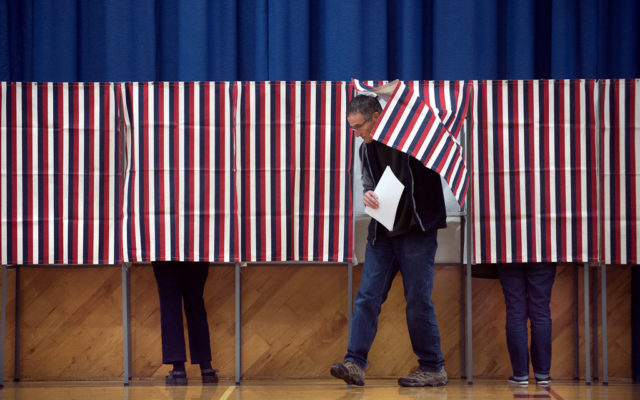
Maine’s top court will expedite ruling on ranked-choice voting referendum
The Maine Supreme Judicial Court is expediting a decision on a referendum petition aimed at stopping the use of ranked-choice voting in this November’s presidential election, the acting chief justice said Tuesday.
The announcement gave a glimmer of hope to opponents of ranked voting who hope that eleventh-hour legal machinations could yet prevent the voting system from being used in the presidential vote, even though ballots are being printed in a ranked format.
The top court heard arguments Tuesday on whether the Maine Republican Party collected enough signatures to force a people’s veto that would give voters the final say on applying the voting system used in congressional races to the presidential election.
The system lets voters rank all of the candidates from first to last on their ballots. The presidential race this November will feature five candidates on Maine’s ballot, including Republican President Donald Trump and Democratic challenger Joe Biden. Voters can rank all five candidates, but aren’t required to do so.
A candidate who reaches 50 percent or more in the first round of voting is declared the winner. If there’s no majority, then there are additional tabulations, aided by computers, in which last-place finishers are eliminated and those votes are reallocated to voters’ second choices. Voters who only select their top candidate essentially forfeit an extra choice should their candidate be knocked out.
That system has become a partisan issue in Maine, where the GOP blamed the system for the 2018 ouster of an incumbent congressman who had the most first-place votes but did not reach 50 percent of the vote on the first ballot.
The Democratic secretary of state, Matt Dunlap, found that Maine GOP’s signature gatherers came up shy of 67,037 signatures needed to place the referendum on November’s ballot, which would prevent the system from being used in the presidential contest.
But a Superior Court justice ruled that the threshold was met by a margin of 22 after reinstating signatures submitted by two gatherers.
The supreme court is now being asked to decide the validity of the signatures submitted by those two Maine residents, who met state law requirements that they be registered voters, but failed to meet a state constitutional requirement that they be registered in the town where they collected signatures.
Patrick Strawbridge, a lawyer for the Maine GOP, told the justices Tuesday it was unfair to disenfranchise voters because the competing requirements create “a trap for the unwary.”
Because constitutional rights are at stake, the court should take the side of those who could be disenfranchised, he said.
Assistant Attorney General Phyllis Gardiner said justices must defer to the plain language of the Maine Constitution requiring them to register in town before circulating petitions.
Because of the appeal, the Superior Court judge’s interpretation is on hold and ballots are being printed without the referendum and with a ranked ballot.
But the referendum could be reinstated — to appear on next year’s ballot — if the supreme court sides with the lower court judge. That would automatically delay ranked voting in this November’s presidential race, the Maine GOP contends, even though the ballot will still be printed in a ranked format. Dunlap declined comment.
A supreme court ruling must come by 100 days from the June 15 signature submission deadline, according to Maine statute. That means the ruling is expected by next week.
Acting Chief Justice Andrew Mead suggested the court will rule quickly.
“We will expedite the deliberation and issuance of the decision, as much as possible,” he told the attorneys.